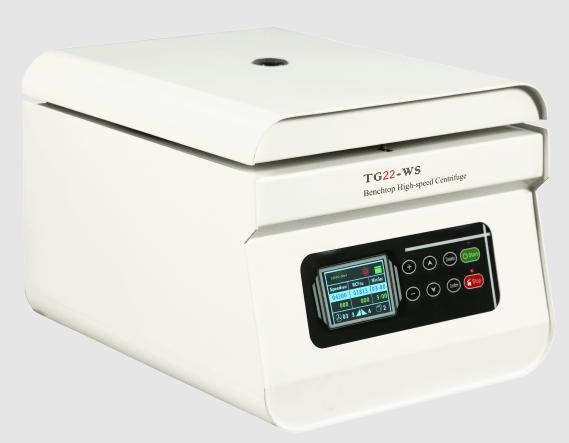A refrigerated centrifuge is a specialized apparatus that separates precipitated mixed liquids, including solids, using centrifugal force. High-speed and low-speed refrigerated centrifuges, benchtop high-speed refrigerated centrifuges, micro high-speed refrigerated centrifuges, and multipurpose benchtop refrigerated centrifuges are examples of centrifuges often used in laboratories. This article discusses the rationale for the development of refrigerated centrifuges, the various types of benchtop high-speed refrigerated centrifuges, and how to select a benchtop refrigerated centrifuge.

Reasons for the emergence of refrigerated centrifuges
1. When the centrifuge is running at high speed, the rotor body and air generate heat owing to friction, making it difficult to control the body temperature. Excessive heat shortens the life of the centrifuge's internal components. To safeguard the machine components, the refrigerated centrifuge incorporates a cooling system that can manage the temperature.
2. The user's experiment needs, such as separation of some organic active chemicals, must be fitted with a low-temperature control system: Enzymes, organic volatile substances, and so on, must be kept at a constant temperature, or the temperature differential should not exceed plus or minus 10°C. It must be ensured that the experimental conditions meet the requirements of the experimental plan and ensure that the experiment runs smoothly.

Five types of benchtop high-speed refrigerated centrifuge
1. TGL-16M/MC Benchtop High-Speed Refrigerated Centrifuge
This type of benchtop high-speed refrigerated centrifuge is equipped with a microcomputer processor for precision control, a digital display of data such as speed, temperature, and time, key programming, and switching to display operating parameters and RCF values. The TGL16 has a brushless DC motor that is maintenance-free and provides great torque and fast lifting speed.
2. High-Speed Refrigerated Benchtop Centrifuge TGL-18M/MC
This machine employs a dual-core CPU to accomplish compatibility of high and low speed, size, and capacity, and is the most advanced device produced in response to current worldwide biological research requirements. TGL18 features a variable frequency brushless motor that is maintenance-free and provides strong torque and quick lifting speed.
3.TGL-20M/MC Benchtop High-Speed Refrigerated Centrifuge
It has a brushless frequency converter motor, precision control by a microcomputer processor, a large-panel LCD screen display, real-time display of all instrument operating parameters, and real-time display of all instrument operation parameters. It uses a fluorine-free compressor unit, produces no emissions, and cools quickly.
4.TGL-22M/MC Benchtop High-Speed Refrigerated Centrifuge
TGL-22M/MC is suitable for routine usage in biotechnology, PCR, life science, and clinical laboratories, among others.
5.TGL-24M/MC Benchtop High Speed Refrigerated Centrifuge
TGL-24M/MC is suitable for routine usage in biotechnology, PCR, life science, and clinical laboratories, among others.

How to choose a Benchtop Refrigerated Centrifuge
Multiple criteria, such as usage requirements, laboratory space, and instrument purchasing budget, must be considered when selecting a benchtop chilled centrifuge. Buying on demand allows you to meet your own needs without squandering the centrifuge's functionality. At the same time, when selecting a benchtop refrigerated centrifuge, you should examine product performance, safety, stability, maintainability, and so on, in addition to your personal needs.
1. Rotating speed
If the intended speed is 10000rpm, a tabletop chilled centrifuge with a maximum speed greater than 10000rpm is recommended.
2. Temperature
Some samples must be stored at low temperatures without being damaged, and thus a refrigerated centrifuge must be chosen. The temperature of a chilled centrifuge varies depending on the brand. Drawell's refrigerated centrifuge uses a high-efficiency, ecologically friendly refrigeration system to keep the instrument cold at high speeds.
3. Rotor
The rotor has a fixed size that is combined with the centrifuge's capacity. It is crucial since it defines the type of rotor and the capacity of the centrifuge.
4. Volume
There are floor-standing, benchtop, and tiny centrifuges available, depending on the size of the space, the amount of sample to process, and the desired speed.
